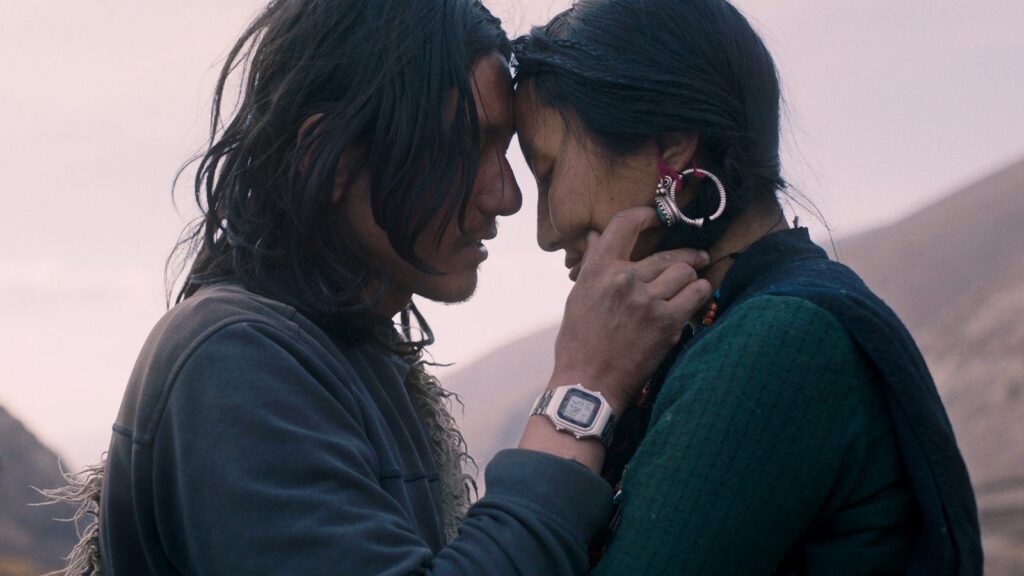Movie Title: Shambhala
Year: 2024
Country: Nepal/France/Norway/Turkey/ Hong Kong/Taiwan/USA/Qatar
Language: In Tibetan and Nepalese with English subtitles
Directors: Min Bahadur Bham
This remarkable film by Min Bahadur Bham, director and co-author Abinash Bikram Shah, stunningly shot through the craft and skill of the most amazing cinematographer Aziz Zhambakiev, presents an iconic and transcendent story as old as The Ramayana's tale of Rama and Sita. Entirely shot in the Himalaya Mountains, where the air is so thin only brush can grow. The attentive and thoughtful camerawork by Aziz Zhambakiev makes every scene a mesmerizing delight.
The story opens in a remote village on the eve of a wedding between a young woman (Pema, played by Thinley Lhamo) and three brothers, with the young bride ‘s parents lovingly give her advice about the upcoming marriage. The eldest brother, Tashi, is her beloved, the next brother, aptly named Karma, is a monk living in a monastery not far away and the youngest brother, Dawa, is not quite a teenager. The marriage ceremony is presided over by the Rinpoche, head of Karma's monastery.
When Tashi fails to come back with the trading party, the now pregnant Pema learns he has heard gossip, that she has been unfaithful and doubts the paternity of her child. She decides to embark on a journey to find Tashi and defend herself. She consults with the head of Karma's monastery who charges Karma to accompany her. There is an awkwardness at first but the two quickly develop affection for each other, with Karma promising, prophetically, to take on the responsibility of the child.
Initially Pema's main relationship is with Tashi, but then when Tashi is away for many months on the trading trip she forms a maternal and much needed disciplinary relationship with Dawa. She forms a strong bond with Karma on her journey through the mountains to find Tashi.
Pema comes from an authentically open and generous family which makes her naive about gossip and mistrust. There is a telling moment when Pema says to Karma that when she finds Tashi, she wants to ask him why he believes gossip rather than trust her.
Upon hearing that his master Rinpoche is seriously ill and close to death, Karma has to return to the monastery leaving Pema to continue on alone. In a dream sequence or a shared transcendent moment with the spirit of the deceased Rinpoche, he tells her that he will see her in two months. Pema catches up with Tashi after travelling full circle and finds she is in a no-win situation. He will never accept the child and demands that she end her pregnancy.
Both Pema and Karma grow spiritually on their journey as does their destiny. The final scene is of the returning spirit of Rinpoche handing his soul over to Pema for his rebirth.
The pacing of the journey through the barren background of the mountains, although arduous and contemplative, instills a sense of the immensity to this eternal story, with every moment savoured and appreciated.




